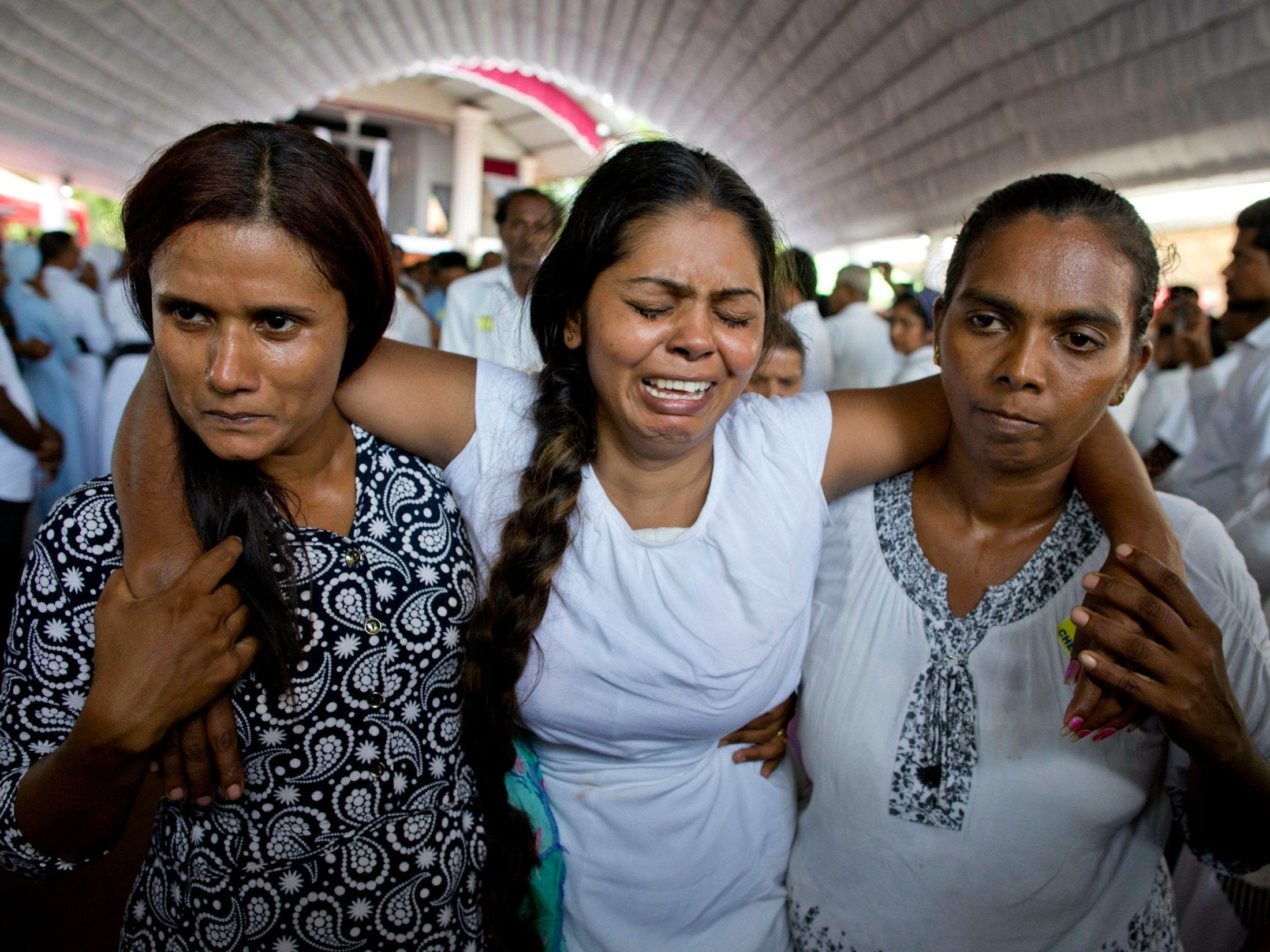Sri Lanka police stations on high alert after suspicious vehicles enter Colombo
Politicians claim police warnings weeks before attacks were ignored

Your support helps us to tell the story
From reproductive rights to climate change to Big Tech, The Independent is on the ground when the story is developing. Whether it's investigating the financials of Elon Musk's pro-Trump PAC or producing our latest documentary, 'The A Word', which shines a light on the American women fighting for reproductive rights, we know how important it is to parse out the facts from the messaging.
At such a critical moment in US history, we need reporters on the ground. Your donation allows us to keep sending journalists to speak to both sides of the story.
The Independent is trusted by Americans across the entire political spectrum. And unlike many other quality news outlets, we choose not to lock Americans out of our reporting and analysis with paywalls. We believe quality journalism should be available to everyone, paid for by those who can afford it.
Your support makes all the difference.Police are checking vans and lorries and have been ordered to be vigilant after a tip off that vehicles carrying explosives have entered Colombo city, a police source told The Independent.
An eye witness said police were investigating a suspicious vehicle close to the Taj Hotel, which is understood to have been one of the intended targets on Sunday.
It comes after the army's bomb squad detonated a van outside St Antony's church in the capital on Monday, sparking fresh panic among the crowd of people gathered outside to pay their respects.
The senior police source, who asked not to be named because he was not authorised to speak on the matter, said the threat to Sri Lanka was "far from over". Government schools, which were due to open on Wednesday, have been ordered closed until next week.
The death toll from the Easter Sunday bombings in Sri Lanka has risen to 311, including eight Britons and dozens of other foreign tourists, as the government faces growing questions over its failure to prevent the attacks.
The government is expected to make a formal statement on Tuesday regarding the perpetrators of the attack, though some ministers have already suggested the recently formed National Thowheed Jamaat militant group is to blame.
Sri Lanka observed three minutes of silence at 8.30am, 48 hours after the coordinated attack that hit three major Catholic churches and three international hotels.
The country is also holding a national day “to mourn the senseless loss of innocent lives”, the prime minister’s office said in statement.
With so many hundreds injured in the attacks, there is every indication that the death toll will rise further.
At the main Colombo National Hospital alone, a health official who asked not to be named told The Independent that more than 260 patients were admitted following the blasts on Sunday.
Other hospitals also took in the wounded, including many at the Negombo Base Hospital near St Sebastian’s Church in the northern town of Negombo, which also suffered many casualties.
The health official said many of those wounded suffered severe burns and head injuries. He said 15 brain surgeries had been carried out on Monday alone, and that many of the patients would not survive.
One patient, Buddika Dinesh, told The Independent he had been working in the restaurant at the five star Kingsbury hotel when it was hit by an explosion. He did not see the suicide bomber himself.
“There was a blast, and I was knocked over. When I opened my eyes, everyone was down.”
Mr Dinesh was hit by flying debris in five places, including his chest, arm and just below his eye. He said he believes three people were killed on the spot.
“One of them was my colleague. I am not angry about what happened, I am sad, so sad for him.”
One line of inquiry will be asking what intelligence services knew about the attack.
Sri Lanka’s health minister Rajitha Senaratne has claimed Sri Lankan authorities received warnings about a potential terror attack weeks before the bombings.
The politician said the defence ministry wrote to the police chief with intelligence that included the group’s name on 9 April.
Two days later, police wrote to the heads of security of the judiciary and diplomatic security division, he said.
Minister for Telecommunications Harin Fernando also tweeted: “Some intelligence officers were aware of this incidence.
“Therefore there was a delay in action. What my father heard was also from an intelligence officer.
“Serious action need to be taken as to why this warning was ignored.”
Members of three British families were among those killed on Easter Sunday.
Lawyer Ben Nicholson lost his wife Anita, son Alex, 14, and daughter Annabel, 11, when one of seven suicide bombers struck as they ate breakfast at the Shangri-La hotel in Colombo.
Londoner Matthew Linsey’s daughter Amelie, 15, and son Daniel, 19, were killed in the same blast on the final day of their holiday.
GP Sally Bradley and her husband Bill Harrop, a retired firefighter from Manchester, died in the Cinnamon Grand Hotel bombing.
It emerged on Monday that Danish billionaire Anders Holch Povlsen lost three of his four children in the attacks.
Mr Holch Povlsen is the largest stakeholder in online fashion retailer Asos and is believed to be the largest private landowner in Scotland after buying a string of estates.
Hampstead and Kilburn MP Tulip Siddiq also said she had lost a relative in the attacks.
Join our commenting forum
Join thought-provoking conversations, follow other Independent readers and see their replies
Comments